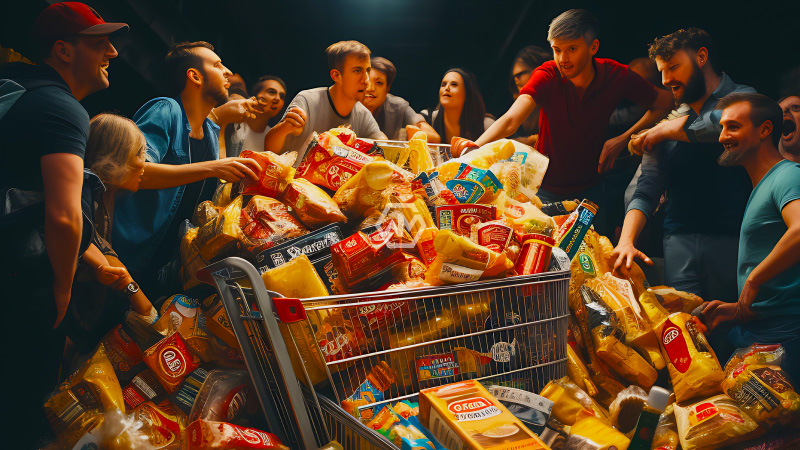- Blue crates are filled with bags of beans, jars of pasta sauce, and cans of fish.
- The People’s VVD has also promised to assist by increasing the minimum wage and offering specific assistance.
- The national umbrella organization in the Netherlands: 1.2 million people live below the poverty line.
Blue crates are filled with bags of beans, jars of pasta sauce, and cans of fish. In this prosperous Dutch town, a large freezer and a walk-in refrigerator keep meat, dairy, and bread cold. In one of the richest countries in the world, the means to feed the new impoverished are readily available.
Families in need are lining up for free food distributions at food banks all over the Netherlands, highlighting the fact that poverty is becoming more widespread even among lower middle-class families and the reason that addressing it will be a key issue in this Wednesday’s parliamentary election.
Cost-of-Living Crisis
“Security of existence” has come to refer to the high cost of living, a persistent lack of social and affordable housing, and restrictions on access to affordable healthcare in political campaigning. All political parties have included this issue in their election platforms, with the middle party and populist right-wing parties being crucial players in coalition negotiations.
The centrist “middle party” is embodied by Pieter Omtzigt, a former Christian Democrat who established the New Social Contract and will be crucial to coalition negotiations after the results are in.
One of his key campaign themes is eradicating poverty, and his party’s platform calls for lowering the cost of basic needs while changing welfare and tax laws to increase people’s disposable income.
The People’s Party for Freedom and Democracy (VVD), a center-right party that has historically been associated with the wealthy and the free market, has also promised to assist by increasing the minimum wage and offering specific assistance to families that have children.
Some of the same solutions are put forth by a center-left two-party bloc led by former EU climate chief Frans Timmermans, who advocates raising the Dutch minimum wage to 16 euros ($17.40) per hour. But that is insufficient for certain workers and those receiving welfare payments.
According to the national umbrella organization for 176 food banks in the Netherlands, 1.2 million people live below the poverty line, and they serve 38,000 households weekly in total.
The actual number of people on the breadline might be much higher; estimates place the true number of people eligible for food assistance at a three to five times higher level. Currently, Rob Kuipers, the head of the Leidschendam-Voorburg food bank, is watching the election results to see if any new political parties emerge to take control of the nation.



